- Home
- James Rollins
The Eye of God Page 8
The Eye of God Read online
Page 8
Gray stepped over to them. “Excuse me.”
The two stopped in midargument.
Gray grinned sheepishly as they looked over. He ran fingers through his hair as if his next words pained him to admit.
“I was wondering if you were heading back to Hong Kong and might be willing to help out a pair of guys who lost their shirts playing pai gow. We don’t even have enough left over for a ferry ticket back to Kowloon.”
The man straightened, clearly suspicious, but also a little drunk. “You’re Yanks,” he said, with no less surprise than if they’d been Lilliputians. “Normally I would say yes, my good chaps, but you see—”
Gray showed them his pistol, while Kowalski parted his duster to reveal his AK-47.
“How about now?” Gray asked.
The man sagged as if the air had been let out of him. “You know my wife will never let me live this down.”
She crossed her arms. “I told you we should have left sooner.”
The husband shrugged.
After tying and gagging them aboard a neighboring dark yacht, Gray chugged their craft out of the marina. Once clear, he opened the throttle and set off across the dark waters toward Hong Kong.
As the lights of Macau receded behind them, Gray stepped away from the helm. “Take the wheel.”
Kowalski, a former seaman, gladly took his place, rubbing his palms in anticipation. “Let’s see what this baby can do.”
That normally would have worried Gray, but he had greater concerns.
With this brief respite, he unbuttoned his satellite phone from his jacket pocket. He saw he had multiple voice mails from Sigma command. Earlier, he had turned the ringer off before taking that meeting back at the Lisboa. Since then he’d never had a safe moment to turn it back on.
Rather than listening to the recordings, he simply called up Sigma command in D.C. The phone had DARPA’s latest encryption software to discourage unwanted eavesdropping.
Kat Bryant immediately picked up. “About time you checked in.”
“Been a little busy.”
From the tone of his voice, she picked out something was wrong. “What happened?”
He gave her a thumbnail version of the night’s events.
Kat asked a few probing questions, quickly assessing the depth of the quicksand. “Gray, I can’t get you help. Certainly not in time to do any good, not with her already in their hands.”
“Understood. That’s not why I was calling. I just wanted to give Sigma a situation report.”
In case things went south from here.
“We’re having our own crisis out here,” Kat said. “That’s why I was trying to reach you. Director Crowe wanted you and your team to travel to Mongolia.”
Mongolia?
She told him a sketchy story of a downed satellite and a last image that showed the East Coast burning.
“I can’t head there,” he said as she finished. “At least not now.”
“Of course. The circumstances have changed.” Her next words were laced with worry. “But what are you going to do out there, Gray? You have no resources. And the criminal organizations in Macau are notoriously ruthless and well funded.”
“I have a plan.”
“To do what?”
Gray stared across the waters ahead toward the distant glow on the horizon.
“To fight fire with fire.”
5
November 17, 6:04 P.M. EST
Washington, D.C.
Jada held her breath.
What am I doing here?
It felt like she had fallen through Alice’s looking glass.
To her side, Painter Crowe placed his hand on a security pad inside the elevator. A blue line scanned his palm, and the elevator cage began to drop into the earth.
Their jet had made the cross-country trip in less than five hours. After landing, they had been whisked by private car to the National Mall, stopping at the majestic Smithsonian Castle, a flag waving from its highest tower. As she had stepped out of the car, she had looked with new eyes at the historic building with its jumble of redbrick parapets, turrets, and spires. Completed in 1855, the structure was considered one of the finest examples of Gothic Revival in the United States and now served as the heart of the many museums that made up the nation’s Smithsonian Institution.
Having grown up in Congress Heights, a poorer area southeast of D.C., she had visited the Castle countless times as a girl. Admission to the museums had been free, and her mother, a single parent, encouraged her daughter’s education in every way she could.
“I never knew this was under here,” Jada said in a hushed voice as the elevator dropped into the subterranean world beneath the Castle.
“These levels were once bunkers and fallout shelters. Back in World War II, it even served as home to a scientific think tank. After that, it was abandoned and forgotten.”
“Such a prime piece of Washington real estate as this?” She offered Painter a crooked grin.
He smiled back. For someone two decades older than her, he was a fine-looking man, with his dark hair laced by a single snowy lock and those blue eyes. After their long conversation during the flight here, she also found him remarkably smart, with a wide swath of knowledge on many subjects—with the exception of the history of jazz. But she could forgive him that lapse, especially when those blue eyes danced in sunlight.
“Once I discovered these dusty levels,” he said, “it struck me as a perfect haunt for Sigma to set up shop, what with its easy access both to the labs of the Smithsonian and to the halls of power in D.C.”
She heard the flicker of fatherly pride in his voice; he was plainly happy to show it off to newcomers, which she suspected must be a rare event.
The elevator doors whooshed open into a long central hallway.
“This is the command level,” he said, leading the way. “Ahead is our central communications nest, the nerve center of Sigma.”
As they approached, a slim woman in the dress blues of the navy stepped out of the room to greet them. She was handsome in a hard way, perhaps made more severe by the short bob of her auburn hair. Jada also thought she noted a trace of faint scars across her cheeks, but she refrained from staring.
“Director Crowe,” the woman said. “Good to have you back, sir.”
“This is Captain Kathryn Bryant,” Painter introduced. “My second-in-command.”
“Kat is fine.” She shook Jada’s hand with an overly firm grip, but the warmth of her small smile softened the greeting. “Welcome, Dr. Shaw.”
Jada licked her lips, anxious to see more of this world, but she knew their timetable was short.
“How are preparations going?” Painter asked. “I’d like to have this team moving in less than an hour.”
“You heard about Commander Pierce?” she asked and led them into the communications room. The oval space was small, dominated by a curved bank of monitors and computer interfaces.
“I did. We’ll work around him if need be. I assume you’re offering him whatever support he needs.”
Kat cast him a withering glance, suggesting she’d do nothing less. She settled into a chair before the monitors, like a pilot taking the helm. “As to the itinerary for this mission, Monsignor Verona and his niece will be taking the first morning flight out of Rome headed to Kazakhstan. It’s a five-hour flight for them. If we stay on schedule here and get wheels up in an hour, our team should touch down about the same time as the Veronas . . . midafternoon local Kazakhstan time.”
Jada frowned. This was one part of the expedition that made no sense to her. “So as I understand it,” she said, wanting clarification, “we’ll be collecting these others to substantiate our claims that our search of Mongolia’s remote mountains is archaeological in origin.”
“That’s right,” Kat said. “But we’ll also be using the remainder of that day in Kazakhstan to investigate a mystery that may or may not be connected to the current threat. If nothing pans out, you move on.”
Painter had briefly explained about a skull and book. But she had hardly listened, not giving his story much credence. But this wasn’t her call.
“And who else will be on this expedition?” Jada asked.
The answer came from behind her. “That would be me, for one.”
She turned to find a man standing a few inches shorter than her, but beefy as a pit bull. He wore sweatpants, a T-shirt, and a Washington Redskins baseball cap that did little to hide his perfectly smooth head. Her first instinct was to dismiss the man, but she noted the sharp glint of intelligence in his dark eyes—and amusement.
Though she couldn’t put a finger on why, she felt an instant fondness for him, like for a goofy older brother.
It seemed she wasn’t the only one.
Kat Bryant leaned back in her chair. The stranger crossed over and kissed the woman on the lips.
Okay, maybe not a brother.
As the man straightened, Kat glanced back to Jada. “He’ll take good care of you.”
“She has to say that because she’s my wife.” He kept one hand lovingly on her shoulder.
Jada finally noted the other hand was prosthetic, attached at his wrist by a thicker cuff of electronics. It was so real she almost missed it.
Painter nodded to him. “Monk Kokkalis is one of Sigma’s best.”
“One of?” he asked, looking wounded.
Painter ignored him. “You’ll also be accompanied by another, one of our newest members. His specialty is electrical engineering and physics. He also knows a fair amount about astronomy and has some, shall we say, unique talents. I think you’ll find him a great asset.”
“That would be Duncan Wren,” Kat explained.
“Speaking of which, where is he?” Painter asked. “I thought I asked everyone to attend this mission briefing.”
Kat shared a glance with her husband, then swung around to face her monitors. She mumbled under her breath. “I’ve already briefed him. He had a medical matter he had to attend to before leaving.”
Painter frowned. “What medical matter?”
6:18 P.M.
“Don’t move,” he was warned.
Duncan balanced his six-foot-two bulk on a tiny folding chair with a wobbly leg. “It would be easier, Clyde, if you took into account that not all your clients are emaciated meth addicts.”
Across from him, his friend wore a surgical mask and a set of magnifying eyeglasses affixed to his face. Clyde looked like he might break ninety pounds when wet, most of which was hair, which trailed in a long ponytail down his back.
Clyde grasped Duncan’s large hand atop the table, as if about to read his palm. Instead, he reached with a scalpel and nicked the edge of Duncan’s left index finger near its tip. Fire lanced up his wrist, but he kept his hand steady on the metal table.
Clyde plunked the scalpel down. “This next part may hurt.”
Ya think . . .
Picking up a sterilized pair of tweezers, his friend probed the new wound. As steel scraped nerves, pain set Duncan’s teeth to grinding. He closed his eyes, controlling his breathing.
“Got it!” his torturer said.
Duncan opened his eyes to see a tiny black pellet, the size of a grain of rice, extracted from the cut, clutched in the jaws of the tweezing forceps.
It was a sliver of rare-earth magnet.
“Now to replace this old worn one with a new one . . .”
Using the same tweezers, Clyde lifted a fresh magnet from the cache Duncan had supplied. The magnets were courtesy of a DARPA lab in New Brunswick, though their current use was definitely off-label.
The rice-sized pellet—coated by Duncan in Parylene C to prevent infection—was slipped through the wound. Once in place, a few drops of surgical glue closed the cut, sealing the magnet beneath his skin, where it rested beside the somatosensory nerves responsible for a fingertip’s perception of pressure, temperature, and pain.
This last sensation was certainly responding strongly.
“Thanks, Clyde.”
Duncan opened and closed his fist, squeezing away the worst of the postsurgical throbbing. This wasn’t his first time to the rodeo. Each of his ten fingers had similar slivers of magnet in place, and every now and then, they had to be replaced.
“How does it feel?” Clyde yanked down his mask, revealing a nasal stud through his septum and a thick steel ring through his lower lip.
Not your typical doctor.
In fact, the man had been a dental hygienist in a former life. In his new profession, operating out of a warehouse near the Ronald Reagan airport, he was the local biohacking community’s best grinder, someone who designed and installed body enhancements.
Clyde preferred the term evolutionary artist.
Myriad other professions shared the industrial space, each separated by opaque plastic curtains: a tattoo artist who had developed a luminescent ink, a piercer who inserted tiny bits of jewelry into the whites of a client’s eye, another who implanted RFID chips into bodies as wearable storage devices.
Although most patrons came here for the novelty or the thrill, a handful had turned biohacking into a new religion, and this was their church. For Duncan, it was simply a matter of professional need. As an electrical engineer, he found this particular biohack a useful tool, a new way of perceiving the world.
“Want to take the new magnet out for a spin?” Clyde asked.
“Probably too sore, but let me see what you’ve sculpted.”
He knew that’s what Clyde really wanted to show him.
His surgeon waved him over to a neighboring table wired with circuit boards, spools of exposed wires, and stacked series of hard drives of varying heights.
“I’m still fine-tuning my latest bit of art.”
“Power it up.”
Clyde flipped the toggle. “It’ll take a few seconds to fully generate the field I created.”
“I think I can wait that long.”
Despite misconceptions, the magnets at his fingertips couldn’t pick up coins or even demagnetize credit cards. Even airport screening machines failed to pick them up. But what they did do was vibrate in the presence of an electromagnetic field. The minuscule oscillations were enough to excite the nerve endings in his fingertips to create a unique sensation very distinct from touch, almost a sixth sense.
With practice, he had discovered that EM fields triggered a variety of sensations, each uniquely different in size, shape, and strength. Palpable bubbles surrounded power transformers. Microwave ovens cast off rhythmic waves that pushed against his hands. High-tension wires pulsated with a silky energy, as if running his fingertips over the smooth skin of an undulating snake.
He also used the magnets for more practical purposes as an electrical engineer. His sixth sense could discern the level of power running along cables or judge if a hard drive was spinning properly inside a laptop. He’d even once used it to diagnose a problem with the distributor cap in his 1995 Mustang Cobra R.
After discovering the rich complexity of this hidden electromagnetic world, he never wanted to go back. He’d be blind without his magnets.
“Should be ready,” Clyde said, waving his arm over the table of carefully manipulated electrical appliances.
Duncan lifted his hands over the table. The energy generated by Clyde’s assembly seemed to push back against his fingers, giving a haptic sensation of form. He ran his magnetic fingers over that surface, discovering the unique shape artfully sculpted by Clyde through the judicious placement of hardware and flow of current.
He felt upswept wings of energy spreading wide to either side. Beneath the wings, his fingertips grew warmer the deeper he probed, even turning hot as he neared the table’s surface.
As he probed, his fingertips gave form and substance to the invisible. An image grew in his mind’s eye, as real as any sculpture.
“Incredible,” Duncan said.
“I call this piece Phoenix Rising from the Ashes of the Digital Age.”
&
nbsp; “Ever the poet, Clyde.”
“Thanks, Dunk.”
He paid the man for his services, checked his watch, and headed across the warehouse floor.
He could have had someone at Sigma perform this for him. Monk Kokkalis, with his background in medical forensics, was certainly skilled enough. But he’d known Clyde and his friends from his prior life, back when he thought he was going to rule the world as a college basketball star with La Salle. His muscular arms still bore sleeves of tattoos from the elbow up—and he still wore a silver stud through his upper left ear, in the shape of a tiny eagle, a memorial to friends lost in Afghanistan during a firefight in Takur. He’d ended up in the U.S. Marines after his rising basketball career imploded following a series of injuries that sidelined him, forcing him to forfeit his scholarship.
By the time he was twenty-four, he had served six tours of duty in Afghanistan, the last two with Marine Force Recon, but after Takur, after he failed to reenlist, Painter Crowe ended up at his doorstep. In his prior life, he had been studying engineering in college and must have shown enough aptitude to be approached by Sigma. Now, after a fast-tracked education, he had a dual degree in both physics and electrical engineering—and was about to go on his first official mission with Sigma.
To find a crashed satellite.
Wanting to be fully prepared, he had come here.
He opened and closed his fist. The pain was already receding.
As he stepped through the warehouse door, he noted a pair of shadowy figures crouched by his parked Mustang. The black Cobra R was family, a muscular piece of his past, as much a memorial as the stud through his ear. He had originally bought the used car for his kid brother, back when Duncan believed his future was a spinning orange ball. Cancer finally caught up with Billy at eighteen, taking away forever that shit-eating grin. But the car remained, full of happy memories of two brothers ruling the world, along with grimmer recollections of loss, pain, and good-byes said too soon.

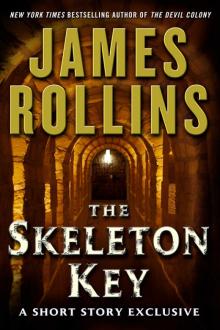 The Skeleton Key
The Skeleton Key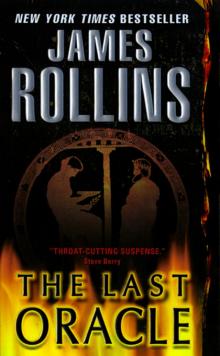 The Last Oracle
The Last Oracle The Judas Strain
The Judas Strain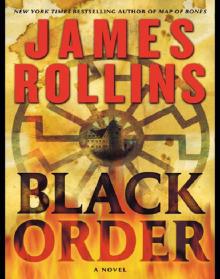 Black Order
Black Order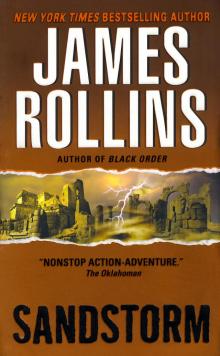 Sandstorm
Sandstorm Ghost Ship
Ghost Ship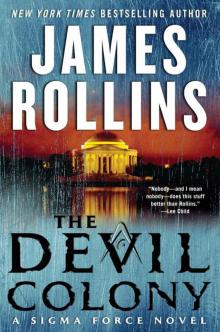 The Devil Colony
The Devil Colony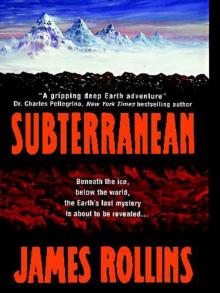 Subterranean
Subterranean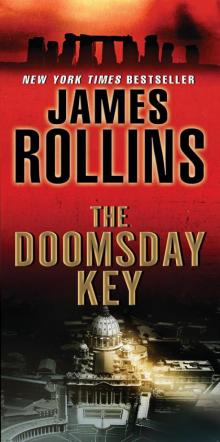 The Doomsday Key
The Doomsday Key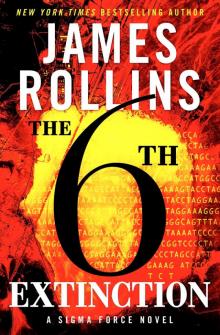 The 6th Extinction
The 6th Extinction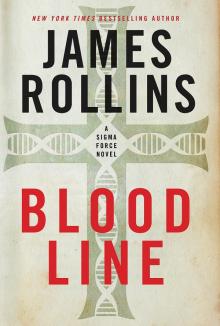 Bloodline
Bloodline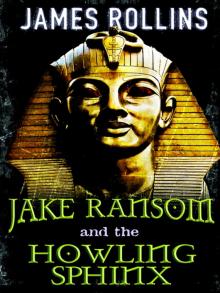 Jake Ransom and the Howling Sphinx
Jake Ransom and the Howling Sphinx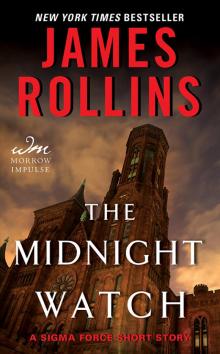 The Midnight Watch
The Midnight Watch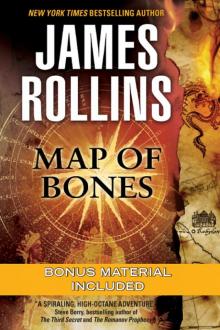 Map of Bones
Map of Bones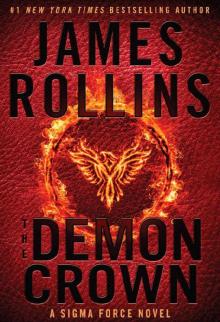 The Demon Crown
The Demon Crown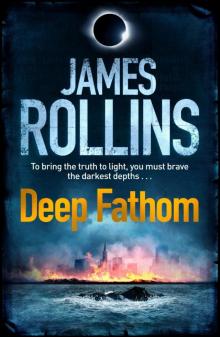 Deep Fathom
Deep Fathom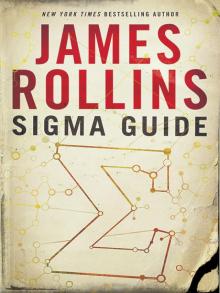 Sigma Guide
Sigma Guide Kowalski's in Love
Kowalski's in Love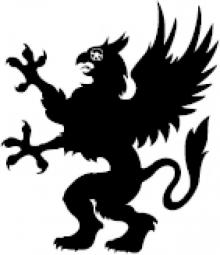 Jake Ransom and the Skull King's Shadow
Jake Ransom and the Skull King's Shadow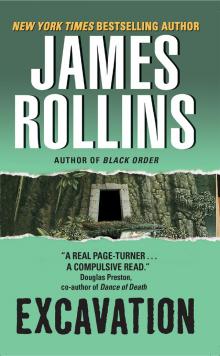 Excavation
Excavation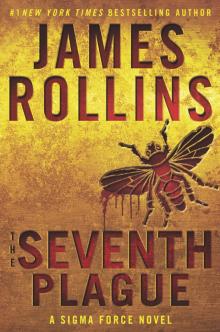 The Seventh Plague
The Seventh Plague Altar of Eden
Altar of Eden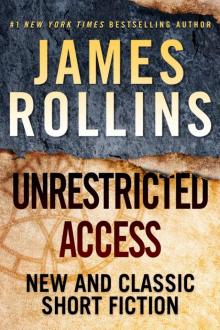 Unrestricted Access: New and Classic Short Fiction
Unrestricted Access: New and Classic Short Fiction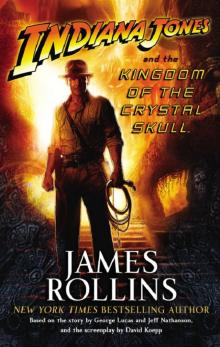 Indiana Jones and the Kingdom of the Crystal Skull
Indiana Jones and the Kingdom of the Crystal Skull Crucible
Crucible The Eye of God
The Eye of God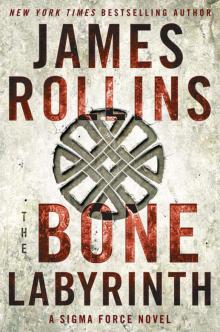 The Bone Labyrinth
The Bone Labyrinth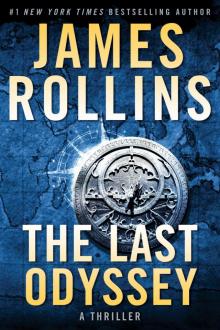 The Last Odyssey: A Thriller
The Last Odyssey: A Thriller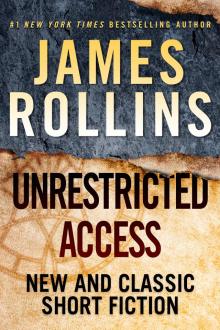 Unrestricted Access
Unrestricted Access Amazonia
Amazonia Blood Brothers: A Short Story Exclusive
Blood Brothers: A Short Story Exclusive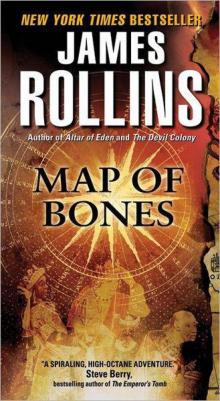 Map of Bones: A Sigma Force Novel
Map of Bones: A Sigma Force Novel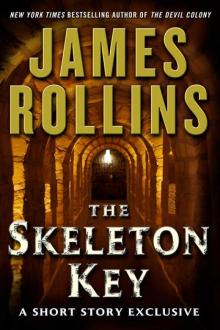 The Skeleton Key (sigma force)
The Skeleton Key (sigma force)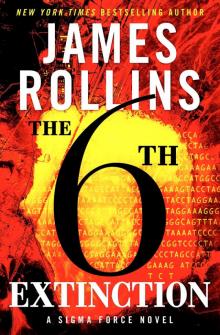 Sigma Force 10 - The Sixth Extinction
Sigma Force 10 - The Sixth Extinction Innocent Blood
Innocent Blood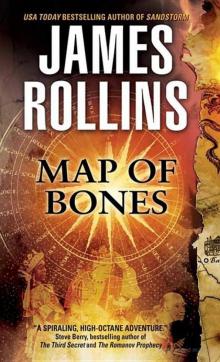 Map of Bones sf-2
Map of Bones sf-2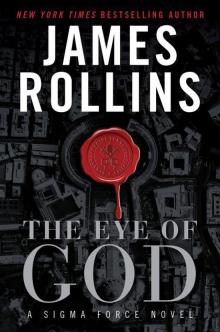 The Eye of God: A Sigma Force Novel
The Eye of God: A Sigma Force Novel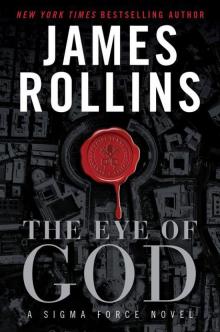 The Eye of God: A Sigma Force Novel sf-9
The Eye of God: A Sigma Force Novel sf-9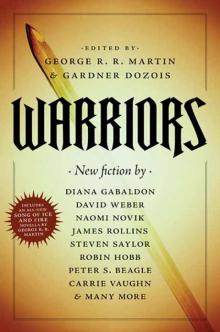 The Pit
The Pit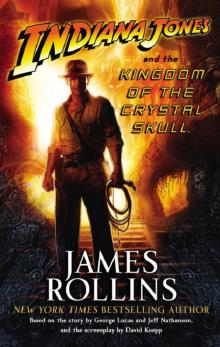 Indiana Jones and the The Kingdom Of The Crystal Skull
Indiana Jones and the The Kingdom Of The Crystal Skull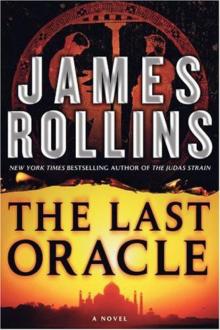 The Last Oracle (2008) sf-5
The Last Oracle (2008) sf-5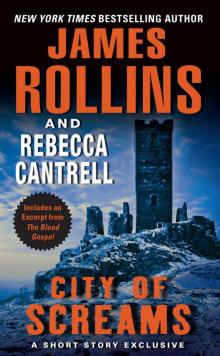 City of Screams
City of Screams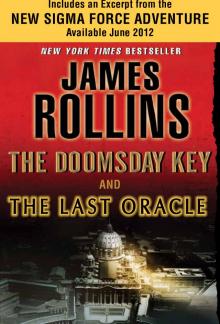 The Doomsday Key and The Last Oracle with Bonus Excerpts
The Doomsday Key and The Last Oracle with Bonus Excerpts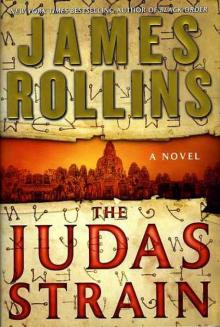 The Judas Strain sf-4
The Judas Strain sf-4 Blood Infernal
Blood Infernal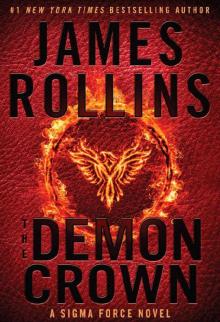 The Demon Crown: A Sigma Force Novel
The Demon Crown: A Sigma Force Novel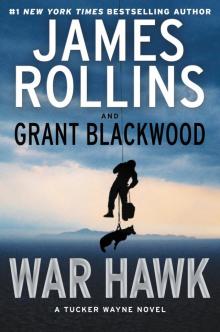 War Hawk: A Tucker Wayne Novel
War Hawk: A Tucker Wayne Novel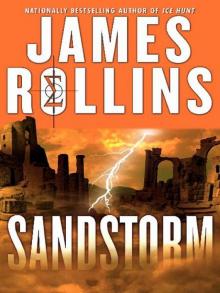 SANDSTORM sf-1
SANDSTORM sf-1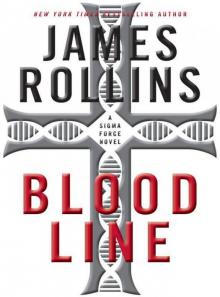 Bloodline: A Sigma Force Novel
Bloodline: A Sigma Force Novel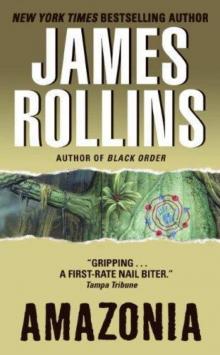 Amazonia: a novel
Amazonia: a novel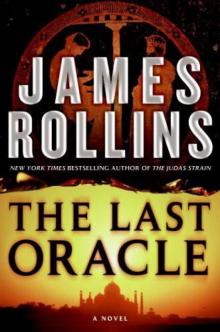 The Last Oracle: A Sigma Force Novel
The Last Oracle: A Sigma Force Novel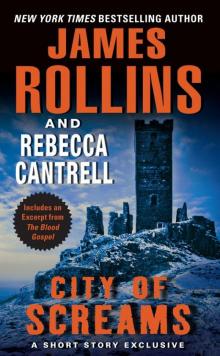 City of Screams (the order of the sanguines)
City of Screams (the order of the sanguines)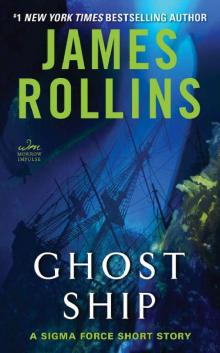 Ghost Ship: A Sigma Force Short Story
Ghost Ship: A Sigma Force Short Story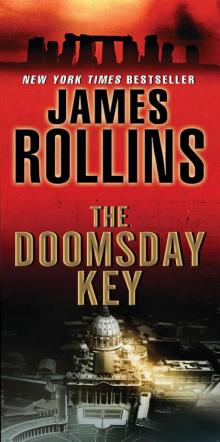 The Doomsday Key: A Sigma Force Novel
The Doomsday Key: A Sigma Force Novel